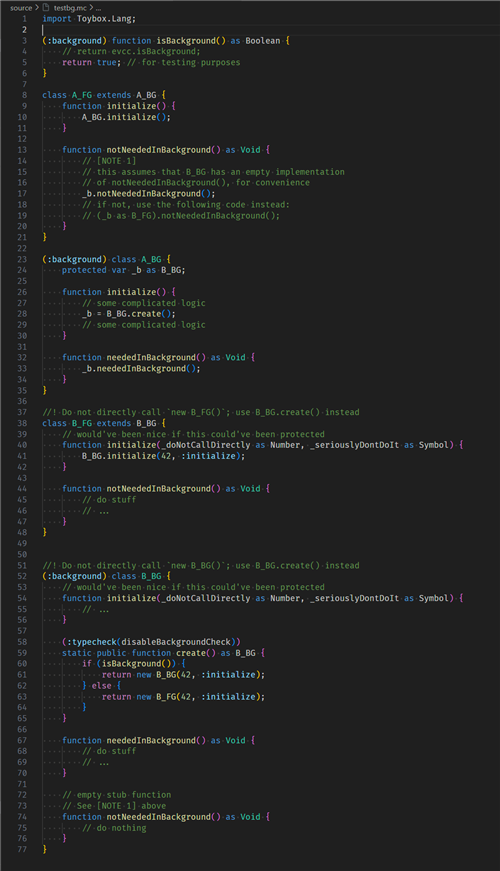I have some classes that have functions shared between background and foreground, and others are used only in foreground. I am looking for a good design pattern to split the two.
Here is an example:
class A {
private var _b as B;
function initialize() {
// some complicated logic
_b = new B();
// some complicated logic
}
function neededInBackground() as Void {
_b.neededInBackground();
}
function notNeededInBackground() as Void {
_b.notNeededInBackground();
}
}
class B {
function neededInBackground() as Void {}
function notNeededInBackground() as Void {}
}
Let's say the logic in A.initialize() is so complicated that I do not want to duplicate it. But when in foreground, it should instantiate the foreground class, when in background, the background class. Also the instantiation can happen in different places, I don't want to just everywhere have if else statements everywhere I instantiate that class.
Best thing I could come up with as solution is this:
class Instantiator {
static function instantiateB() as B_BG {
if( EvccApp.isBackground ) {
return new B_BG();
} else {
return new B_FG();
}
}
}
class A_FG extends A_BG {
function initialize() {
A_BG.initialize();
}
function getB_FG() as B_FG {
return _b as B_FG;
}
function notNeededInBackground() as Void {
getB_FG().notNeededInBackground();
}
}
class A_BG {
protected var _b as B_BG;
function initialize() {
// some complicated logic
_b = Instantiator.instantiateB();
// some complicated logic
}
function neededInBackground() as Void {
_b.neededInBackground();
}
}
class B_FG extends B_BG {
function initialize() {
B_BG.initialize();
}
function notNeededInBackground() as Void {}
}
class B_BG {
function neededInBackground() as Void {}
}
What do you think? Is this the way? Or is there something easier/better to scope the code?


